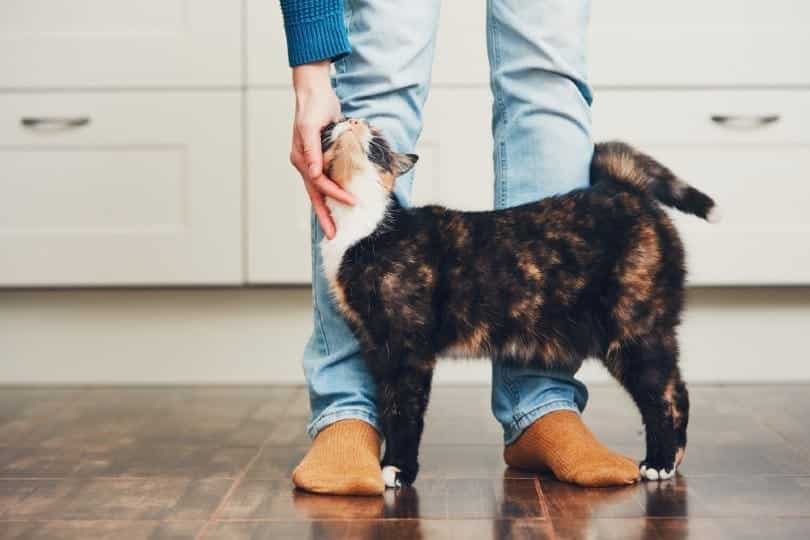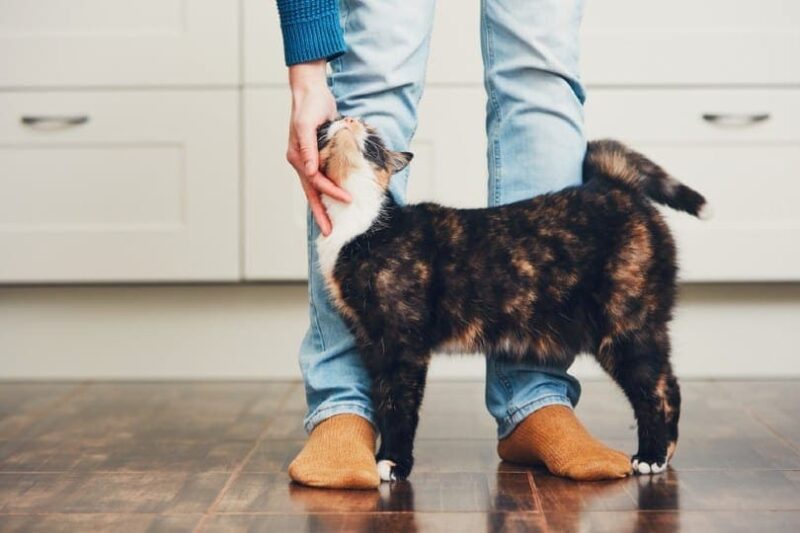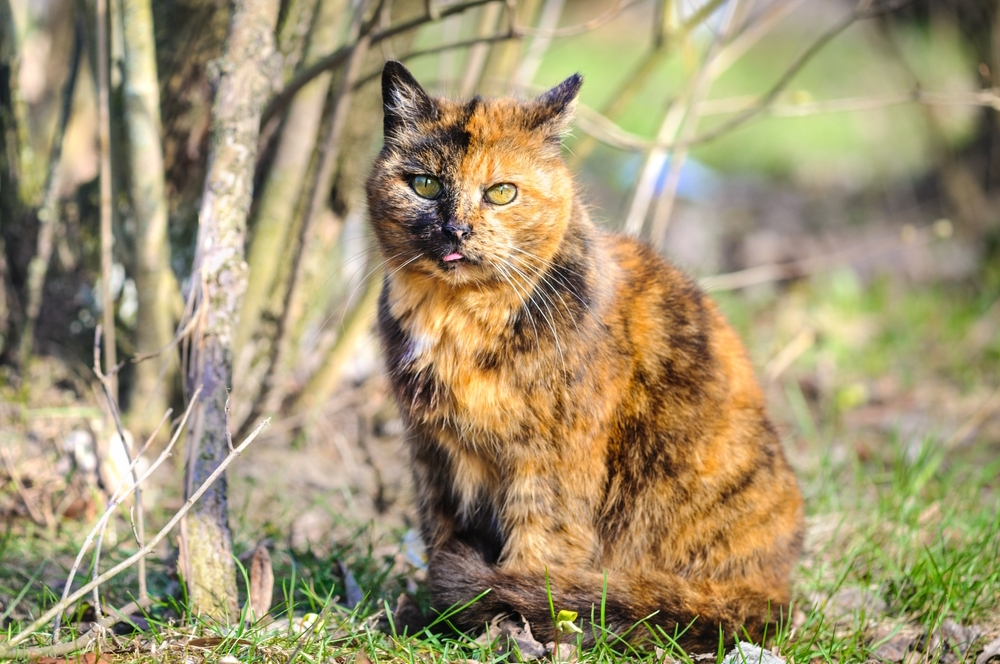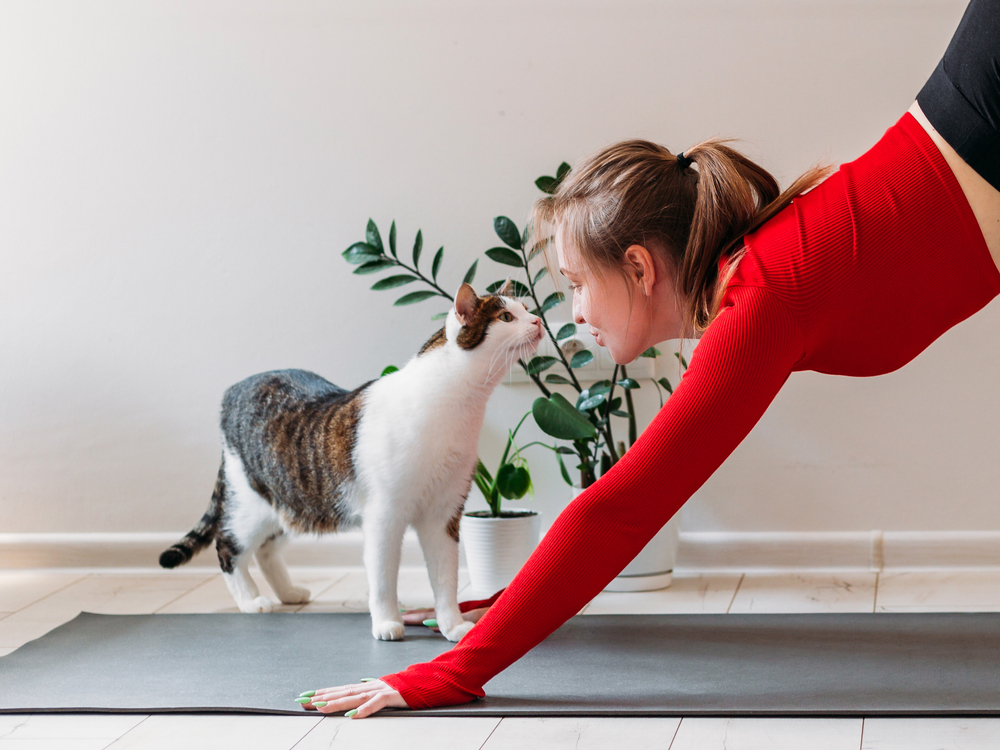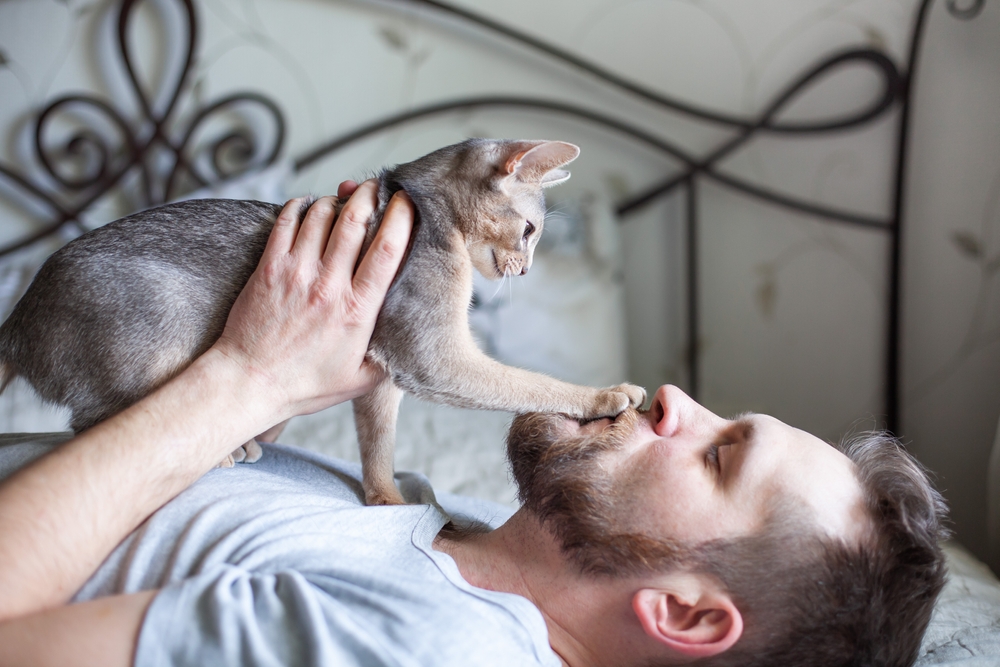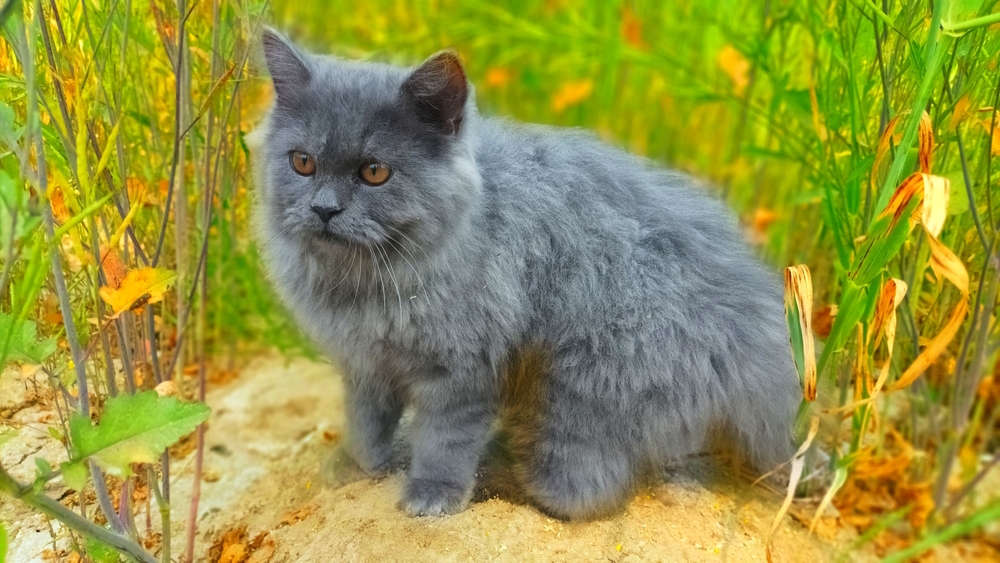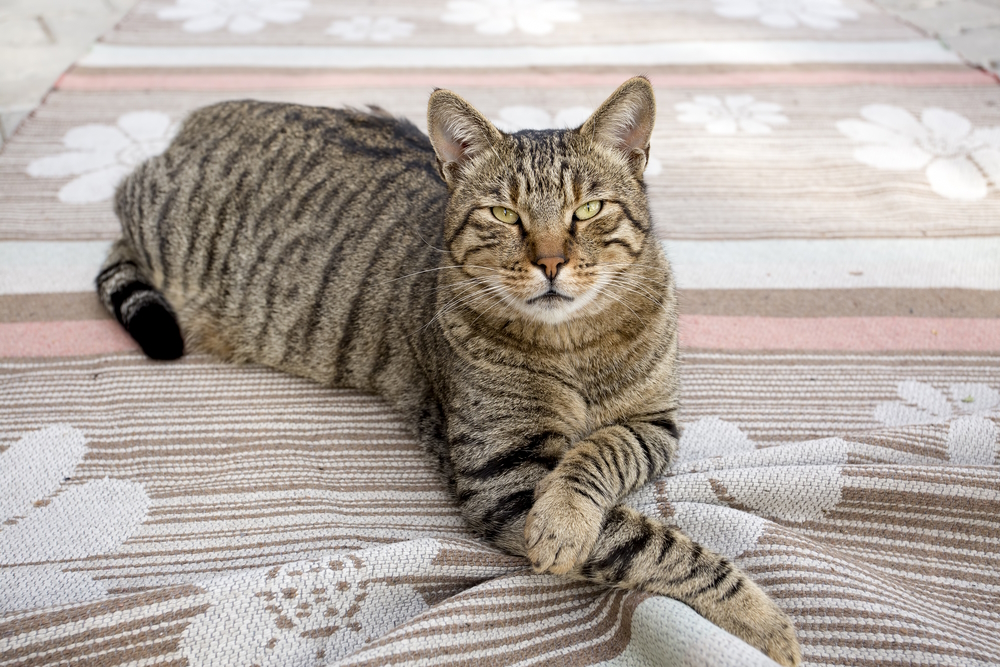Anyone who’s ever lived with a cat and a few other people has probably witnessed the feline tendency to develop a particularly strong bond with one specific individual. It happens in families, and among friends—anywhere there are several humans and one cat. At some point, some cats will gravitate almost exclusively towards one person.
We’ve all seen the dynamic in action—the cat who stays hidden most of the day will appear only to take over their person’s lap as soon as that individual walks in the door and sits down. Or the cat who follows their person from room to room as their human picks up around the house.
Many pet owners would agree that cats have favorites, but that raises the question of how these people get picked. So, how exactly do cats go about choosing their person? Unless someone can read a cat’s mind, they wouldn’t really know. However, the general consensus is that cats prefer to spend time with people who understand their body language and around whom they feel safe. This is often the person who makes the most effort or is frequently involved in day-to-day cat care. But it’s complicated! Here are the factors that appear to increase the odds a person will become a cat’s favorite.

Top 5 Factors That Affect How Cats Choose Their Person
The following opinions are drawn from the author’s experience with cats. While plausible, they’re still open to different forms of interpretation. Likewise, differing opinions may also exist. The premise of these factors is the assumption that cats do have a favorite person – many people hold the opinion that this notion isn’t accurate to begin with.
Though a veterinarian has reviewed the following information, their opinions might not be the same as those of the author.
1. Spending Time Together
Cats are masters of reading body language and can easily identify if another animal is a threat, merely annoying or willing to share food. But they’re also capable of developing more nuanced ways of communicating with individuals they regularly interact with.
If one human consistently feeds, pets, plays with, snuggles, and pays attention to a cat, it’s only natural that the two will become better attuned to each other’s body language and mood — the sheer volume of interaction between them leading to super nuanced communication.
This person will, over time, become extremely well-equipped to understand that cat’s needs. And it’s only natural that cats gravitate towards those who understand them well and respond positively to their overtures. Cats become attached to those who spend time around them, meet their needs, and with whom they share bonds permitting facile communication.
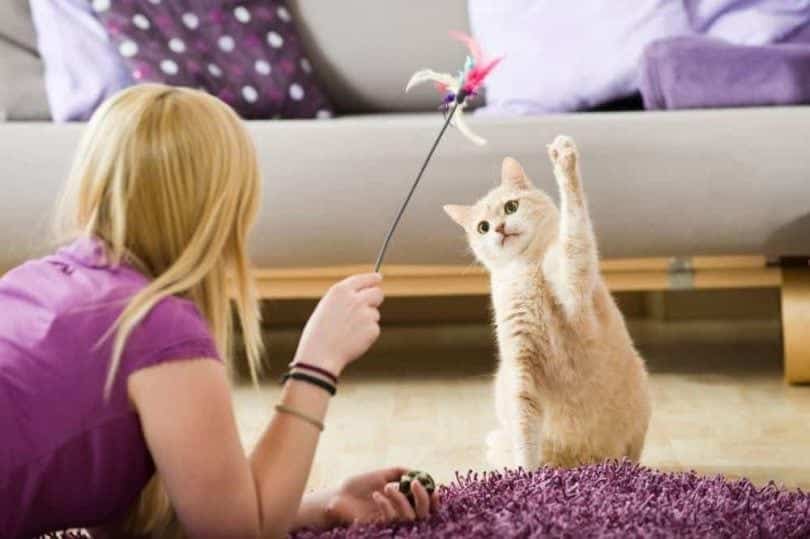
2. A Regular Schedule
Cats are anecdotally drawn to people with predictable schedules. Those who wake up every day at 7 am and are out of bed no later than 8:15 am on the weekends are anecdotally tapped as favorites. The bond will probably be pretty strong if that person starts feeding the cat or regularly engaging in some kind of fun activity — a good early-morning snuggle or a daily bit of chase the shoelace are, along with a regular schedule, pretty much guaranteed to ensure a person first place on any cat’s list of favorite people.
3. Food
Most cats love food. It’s often a strong feline motivator, so it makes sense that cats tend to enjoy the company of those who regularly feed them. The person who gets up every day and feeds the cat their favorite food is going to be in the running for the cat’s favorite person. If that person also spends time with the cat and has a few minutes for games before heading to work, it’s almost a lock.
Cats enjoy spending high-quality time with their humans, valuing most of those moments when their person is fully present and responding to that cat’s needs with love.
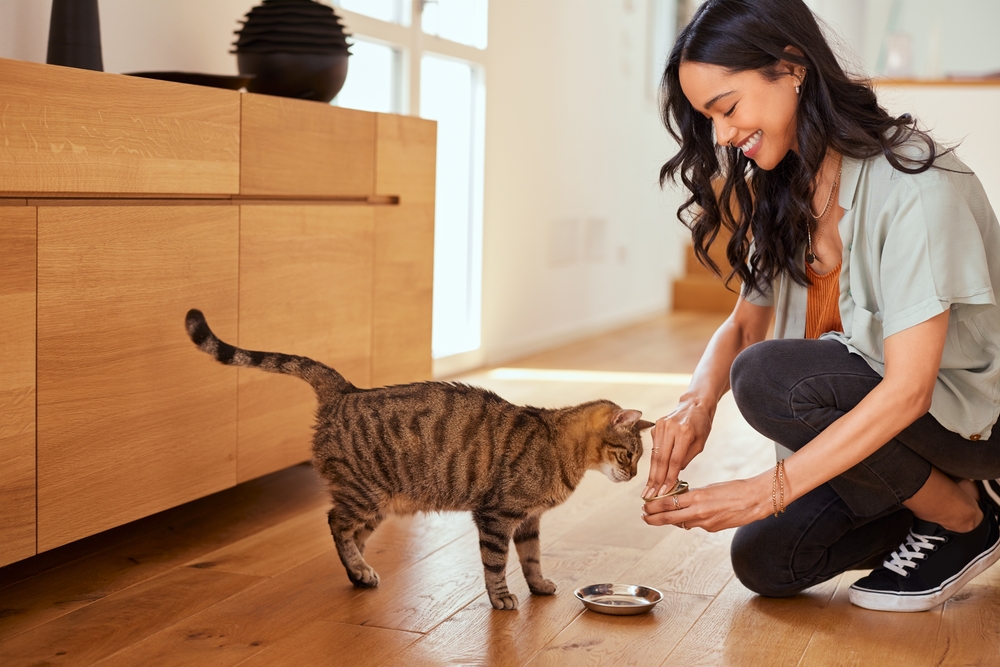
4. Playing Well Together
Cats are individuals, and as such, each has a preferred way of being in the world. Some kitties are super chill and just want to look out the window and cuddle. Other cats are a bit less enamored of human-initiated interactions, preferring not to be picked up and held at length.
A cat that detests being held will most likely prefer to spend time with people who don’t pick them up that much. This could be because the human in question has correctly interpreted the cat’s body language and has learned how to respect feline boundaries or because the person simply doesn’t like snuggling with cats—one of the reasons some cats seem preternaturally drawn to individuals with cat allergies!
5. Early Bonding
A cat that literally grew up around a particular person is likely to be deeply bonded to that individual. This most often happens when a single human adopts a kitten younger than 10 weeks old—a crucial window where cats are thought to be especially receptive to training, social interaction, and a time where experiences can have a very long-lasting effect on your pet. If there’s tons of positive cat-human contact during this period of feline openness, chances are pretty good that the person who petted, played with, offered them treats, and kept them warm as a kitten is going to stay solidly atop the cat’s list of favorites.
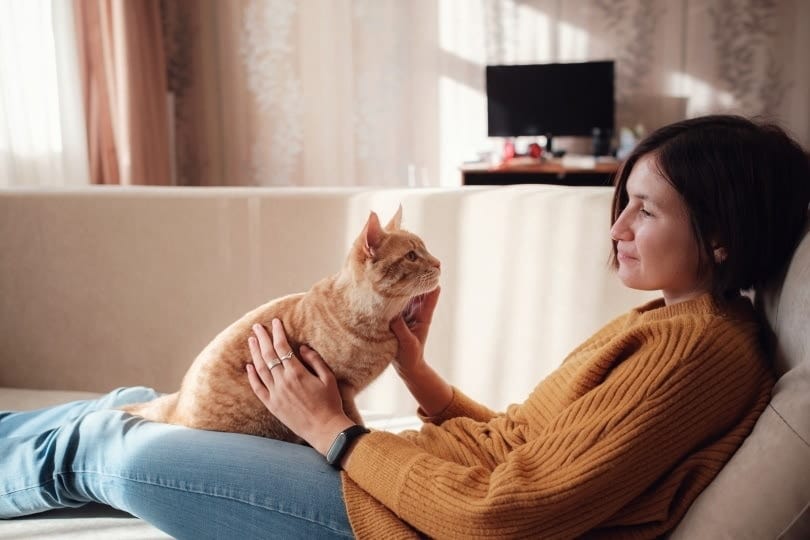

Do Cats Prefer Women?
This myth has existed for a long time among pet owners. However, studies have shown that cats do not spontaneously have a preference for women over men (or vice versa) 1. Instead, it seems humans react differently to cats, in part, due to their own personality. In turn, this may lead to cats preferring some humans over others. Therefore, how you behave and interact with your cat to ensure that they’re well taken care of and content will play a bigger role in their relationship with you than your gender.

Conclusion
Cats pick their favorite people for pretty easy-to-empathize-with reasons—they prefer to be around those who understand what they’re communicating and make an effort to meet their feline needs. These are most often individuals who spend time around the cat, feeding, petting, talking to, and playing with their feline companion.
Hanging out with a cat and being available for fun activities when the cat is interested in interacting are hands down the most important factors when it comes to feline favoritism. In the simplest terms, to become a cat’s bestie, you’ll have to understand their personality well and cater to their idiosyncrasies.
See Also:
- Can You Set Boundaries With Cats? Facts & FAQ
- 5 Ways Cats Bring Families Closer Together: Benefits & Tips
Featured Image Credit: Jaromir Chalabala, Shutterstock

